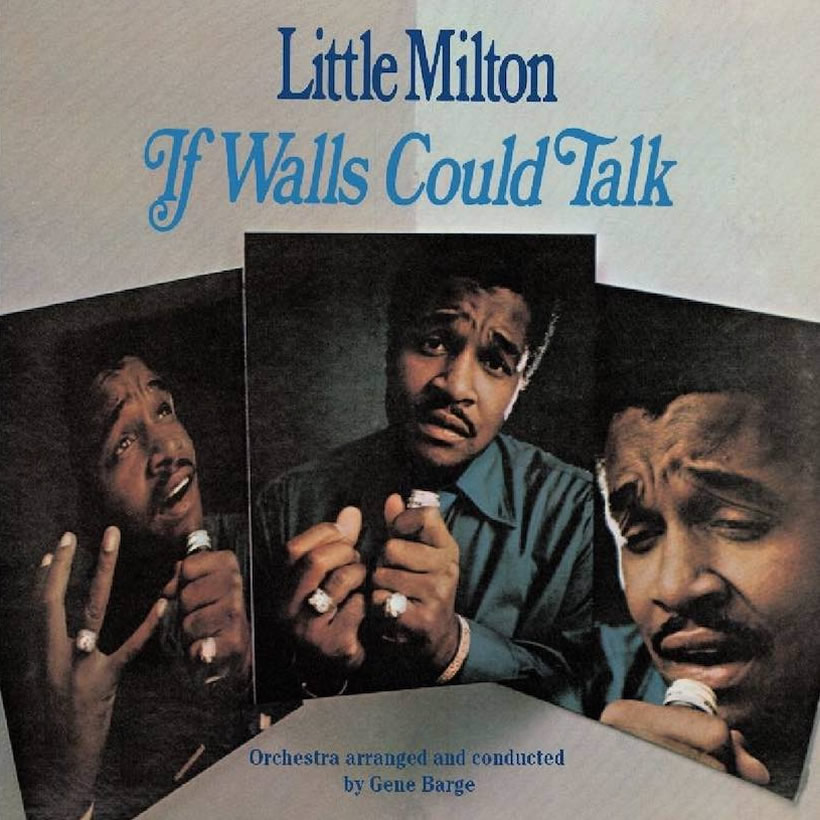The 1960s were in their dying days when Little Milton made yet another entry onto Billboard’s Best Selling Soul Singles chart. But the December 27, 1969 edition provided reassurance that the blues singer-writer’s consistent success of almost that entire decade wasn’t going to be ending anytime soon.
The song in question was the foot-tapping, brassy “If Walls Could Talk,” which was to become not only the title track of his 1970 album, but his biggest hit for the Chess subsidiary Checker in some three years. Milton had three R&B top tenners to his name at that point, with the 1965 No.1 “We‘re Gonna Make It,” the follow-up “Who’s Cheating Who?” and 1967’s “Feel So Bad.”
In a September 1969 article in Record Mirror, the much-respected late journalist-broadcaster Charlie Gillett wrote: “Little Milton has for a long time suffered because of his ability to sound like other more famous singers, so that it wasn’t clear who he was.
“He was born in Inverness, Mississippi, in 1934, and first recorded for Sun, where Sam Phillips had him sing like B.B. King, Fats Domino and Bobby Bland…in the last couple of years, Little Milton seems to have opened out with his own style – and a recent report from Chicago said that in a ‘Battle of the Blues’ contest he got more enthusiastic response from the audience than B.B. King.”
A spirited, soulful performance
Written by Bobby Miller, “If Walls Could Talk” was a rousing track with a spirited and soulful performance by Milton. The song made its chart debut at No.47, in a busy week that also featured new entries by the Sweet Inspirations, Freda Payne, Little Junior Parker, Ike & Tina Turner, Mary Wells, and James Brown. America’s favorite soul single, for the third of four weeks, was the Supremes’ “Someday We’ll Be Together.”
“If Walls Could Talk” – Milton’s 15th soul chart entry over close to eight years – went on to reach No.10, his best showing since “Feel So Bad.” It set up the arrival of the well-received parent album, which appeared in March 1970, reaching No.23 on the R&B chart and a modest No.197 on Billboard’s main LP listing.
Listen to the Blues Classics playlist.
Milton had another couple of years of R&B chart singles ahead of him on Checker, after which he transferred to Stax, appearing in the famous live movie documentary Wattstax. Then came spells on the Glades label and MCA, after which he found a new spiritual home at the independent southern soul company Malaco. He died in 2005 at the age of 70.
Buy or stream “If Walls Could Talk” on the album of the same name.




